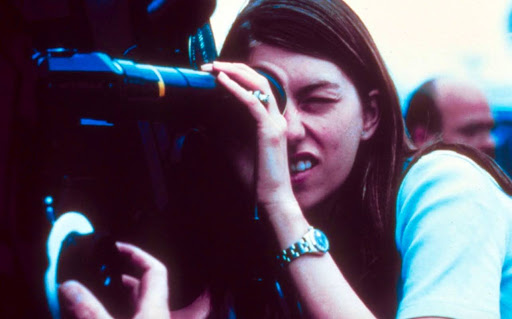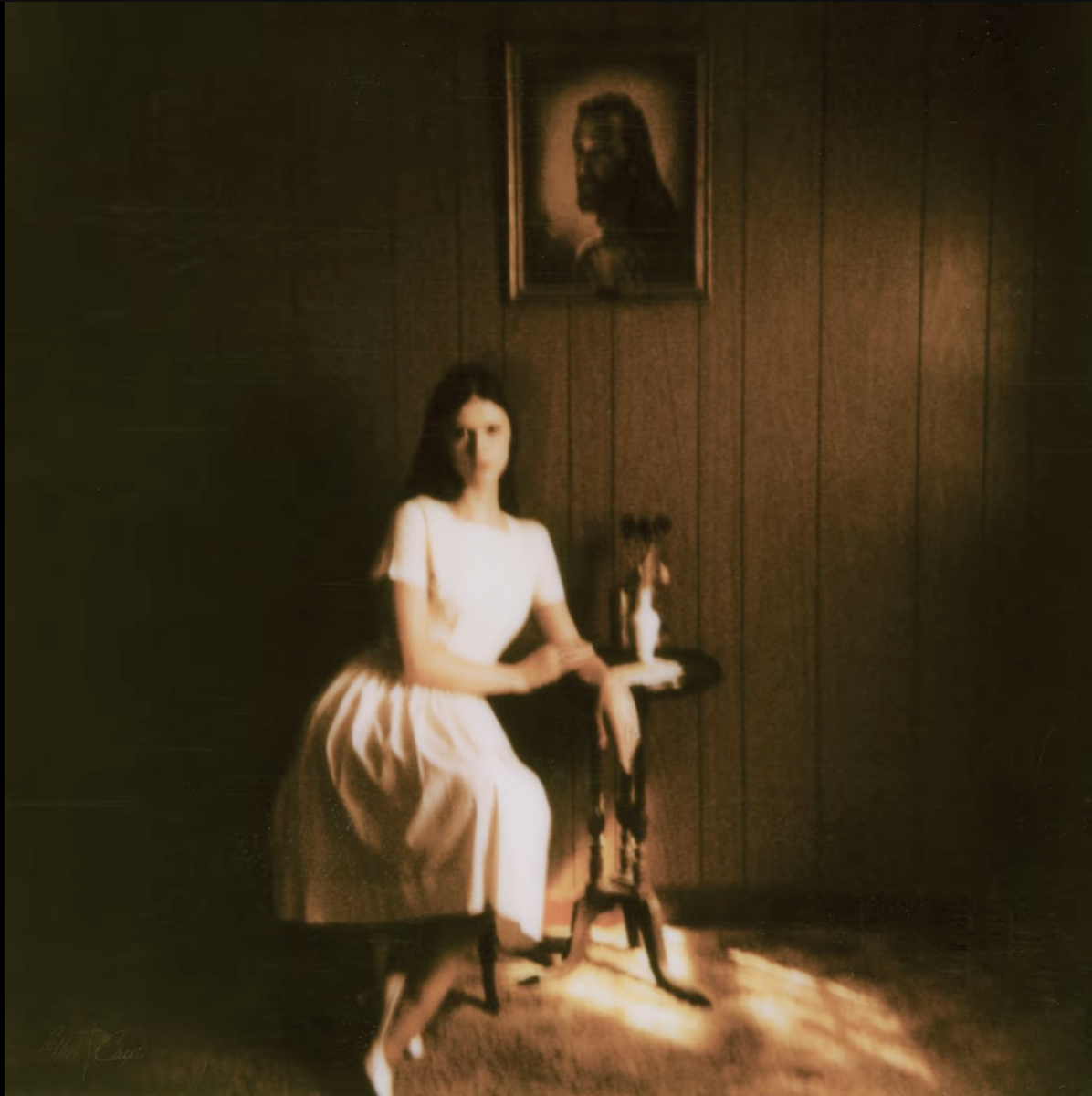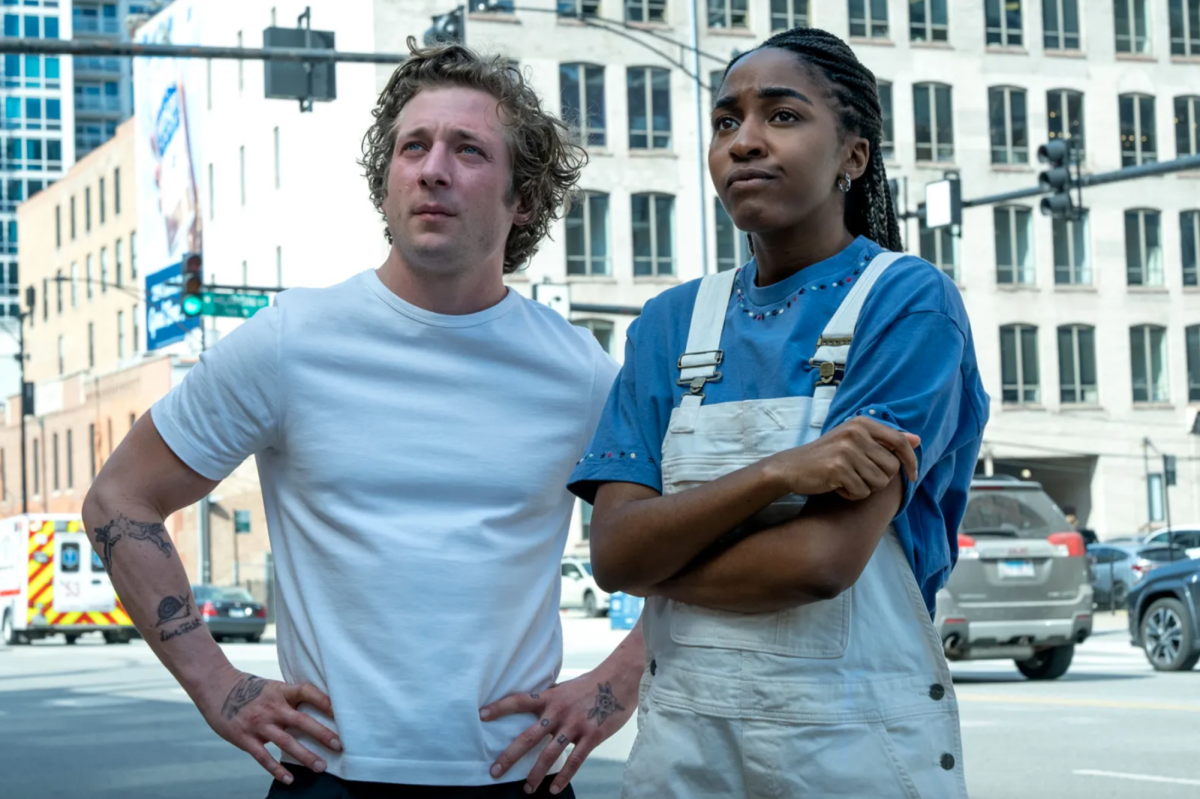Painted toenails walk across fluffy, pink carpet. Sharp winged eyeliner and large false lashes surround big blue eyes. Voluminous black hair is firmly sprayed into place. Floral high-heels click clack across a lavish manor. The “wife to The King” graces the screen in Sofia Coppola’s latest feature film, “Priscilla”.
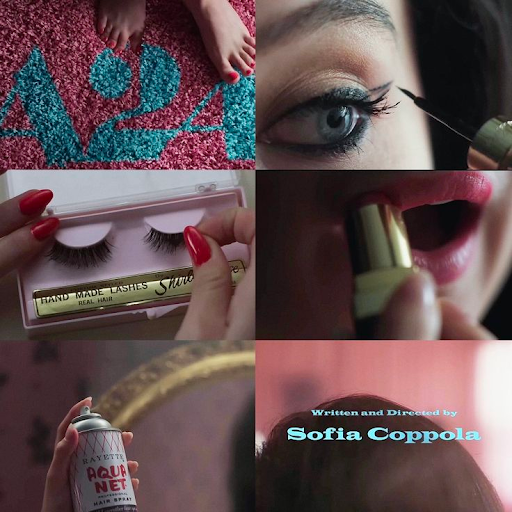
World-renowned and cult classic director Sofia Coppola’s highly-anticipated film premiered at the Venice International Film Festival on September 4, 2023 and was released in the United States on October 27, 2023. The film will make its way to Japanese cinemas on April 12, 2024.
For decades, the “King of Rock and Roll” Elvis Presley was the topic of blockbusters, books, television shows, books, songs, and more. Coppola’s film “Priscilla” twists the narrative and showcases the life of Elvis, played by Jacob Elordi, and his wife of six years, Priscilla, played by Cailee Spaeny, behind closed doors. Evident through the response of “Priscilla”, Sofia Coppola has taken women by storm with #SofiaCoppola amassing over 735 million views on TikTok.
Adapted from Priscilla Beaulieu Presley’s memoir “Elvis and Me”, Coppola’s film gives a voice to a woman to share her perspective on her own story, rather than have it told for her by a powerful man. What makes Sofia Coppola so appealing to women around the world is that, simply, she makes them feel seen.
Womanhood is difficult, complex, and can rarely be accurately portrayed in just a couple of hours of screen time. However, Sofia Coppola depicts it with depth and femininity in every single one of her films. Her movies are mainly centered around one young woman learning to navigate her life. Her films juxtapose the so-called “perfect” life that her female main characters lead on the outside, and the isolated, multi-faceted, sides of their lives that nobody sees.
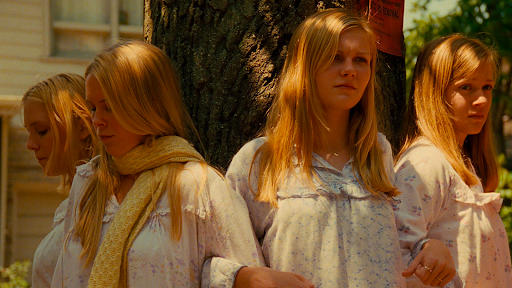
Coppola nails the themes of loneliness and isolation in her films. She excels at creating quiet, personal, and intimate films that characterize and perfectly illustrate that you can be known and loved but may never truly be seen and understood. In Coppola’s 1999 film “The Virgin Suicides”, she expresses the feelings of loneliness in a very two-dimensional way. The Virgin Suicides tells the story of four sheltered teenage sisters pulled back from enjoying adolescence by their very strict parents. The film is told from the perspective of neighborhood boys who never truly understand the girls. Coppola demonstrates the boys’ misinterpretation of the sisters by contradicting the boys’ own narration with visuals that actually tell the girls stories. She juxtaposes the girls’ real lives with the boys’ perspectives to show the viewers what they miss.
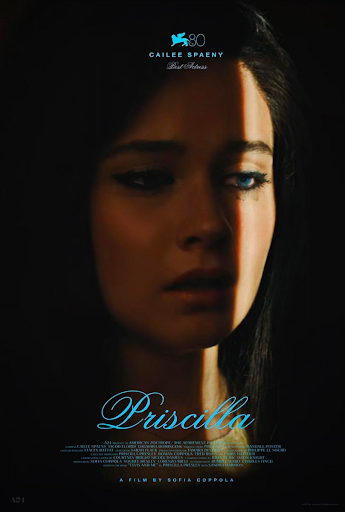
Themes like isolation depicted in her films partially coincide with Sofia Coppola’s own life. As the daughter of Francis Ford Coppola, society had already set expectations for Sofia since her entrance into the film industry. She had big shoes to fill as the child of the legendary director of “The Godfather” trilogy. Therefore, she often expresses the theme of women being “trapped” in society, always being cast in a certain spot, and always being seen in a certain way. Coppola’s quiet, intimate films were very different from her father’s action/crime genre which was unexpected for some. Nonetheless, she made her own mark on the film industry with her own recognizable style, tone, visuals, and captivating female lead characters.
The most extraordinary part of her films is that her main characters are ordinary women. They don’t have secret superpowers, wield magical weapons, or fight crime. Coppola’s female characters don’t become empowered by taking on masculine traits or erasing their femininity. Their complexity is derived from the fact that they are women with feelings, experiences, and emotions. Priscilla doesn’t become the best version of herself by taking her makeup off and trying to embody her famous husband. She becomes powerful when she can muster up the courage to divorce the powerful man who has been controlling her life since she was 14.
Coppola is not the only director who creates films starring women, but nobody captures the true essence of femininity like her. If not a “masculine” fighter or a muscular superhero, female leads are portrayed in a hysterical, overly emotional way. Rom-coms and chick flicks are supposed to appeal to women but are plagued with stereotypes that have burdened women for centuries. Does the misunderstood, quiet girl really need to be saved by the popular jock? Is shopping the only way that women can feel better about themselves? Coppola often uses the same qualities that were stereotypically used to negatively portray females and changes them to shed a positive light on womanhood, changing the world’s view of the former queen of France. Marie Antoinette was commonly seen as a selfish, greedy woman known only for her lavish lifestyle and indifference towards French citizens in poverty. However, Coppola spotlights Marie-Antoinette in a very different way. Rather than illustrating her as a conniving, tone-deaf monarch, she simply presents her as a teenage girl. Marie-Antoinette was a 14-year-old child when she was shipped off to a foreign land to marry a stranger. Coppola demonstrates Marie-Antoinette’s journey through making her own place in such a difficult world, finding power despite tremendous losses and hardships. Coppola allows viewers to see themselves in an 18th-century queen.
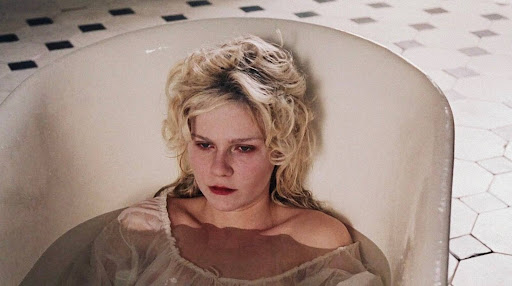
Like Marie-Antoinette, who had to navigate youth and live as a teenager with constant criticism in the public eye, Priscilla Presley’s life, too, switched rapidly from childhood to being a teenage public figure. Both Versailles and Graceland were homes to teenage superstars who grew up too quickly. As the wife of the most famous man on earth, Priscilla was subject to constant backlash, with her narrative being twisted both during her husband’s life and after his passing. She was described as a “gold digger” and a “fame seeker,” using Elvis’s name for her own personal benefit. However, Sofia Coppola’s “Priscilla”has given Priscilla Presley a platform to tell her own side of the story. Coppola sheds light on Presley’s relationship with Elvis at the age of 14, the abuse that she had endured throughout her marriage, and how she was forced to grow up and change herself for her husband, when all she truly wanted was love. Viewers of “Priscilla” gain insight into the not-so-glamorous behind-the-scenes of the King’s wife, even relating to the hardships that Priscilla had faced throughout her life.
Sofia Coppola’s multi-faceted, complex female lead characters are an embrace to women around the world, bringing their stories to life. Whether through the wife of a major celebrity, four lonely sisters, or a teenage queen, Coppola takes viewers through an unapologetically feminine journey of overcoming adversities, stereotypes, and isolation. Coppola proves that ordinary women are the greatest and most worthy stars.
















































